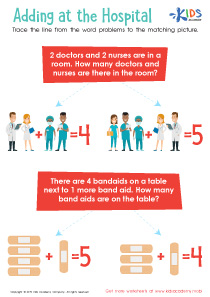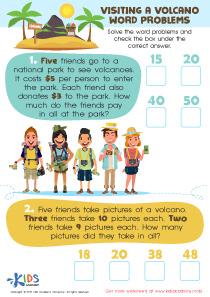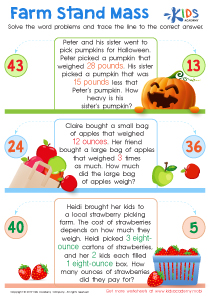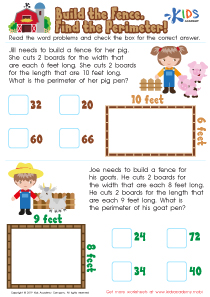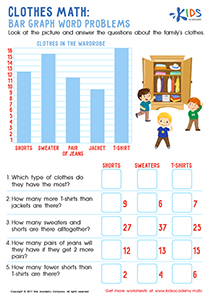Logical Reasoning Normal Two-step Word Problems Worksheets for Ages 4-7
3 filtered results
-
From - To
Enhance your child's logical reasoning skills with our engaging Two-Step Word Problems Worksheets for ages 4-7! Designed to make math learning fun, these worksheets present relatable scenarios that challenge young minds while fostering critical thinking. Each activity encourages children to think sequentially, solve problems collaboratively, and apply basic arithmetic in real-life contexts. Featuring colorful illustrations and diverse examples, these worksheets cater to varying skill levels, allowing for personalized learning experiences. Ideal for classroom settings or at-home practice, empower your child to build confidence and competence in math through these creative and stimulating exercises. Start their journey to mathematical mastery today!


Enrichment -2 Step Word Problems Worksheet


Solve the Problem: Trick–or–treating Worksheet


Addition and Subtraction: Word Problems Worksheet
Logical reasoning and problem-solving skills are crucial for children aged 4-7, as they lay the foundation for future learning in mathematics and critical thinking. Two-step word problems are particularly essential because they teach young students to process information, understand relationships between concepts, and develop multi-step reasoning abilities.
Engaging with two-step word problems helps children learn to extract relevant information and disregard distractions. For instance, they learn to identify necessary actions, such as addition or subtraction, based on a given scenario. This not only improves their mathematical reasoning but also instills resilience and persistence as they tackle complex tasks.
Moreover, addressing these problems supports language development, as children learn to interpret and understand mathematical vocabulary and structure in word form. This combination of math and reading prepares them for broader academic challenges ahead.
Lastly, logical reasoning activities nurture creativity and provide opportunities for interactive learning. By incorporating these skills into everyday activities, parents and teachers can help children gain confidence in their abilities, paving the way for a positive attitude toward learning and problem-solving throughout their educational journey. Ultimately, prioritizing logical reasoning in early education contributes to well-rounded intellectual growth.
 Assign to My Students
Assign to My Students



